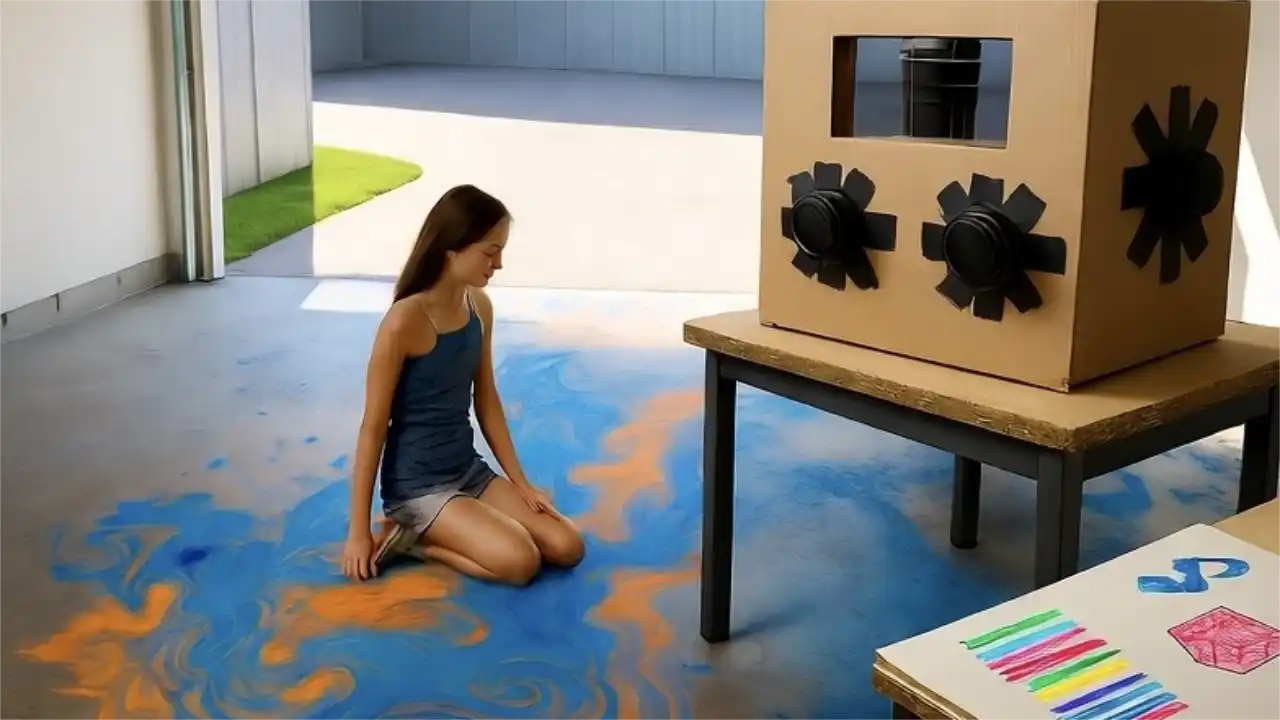
Encouraging Risk-Taking and Experimentation: Free Wild Experiments
M
y daughter once decided to mix every color of paint we had—on the garage floor. “What do you think this will make?” I asked, and she guessed, “Maybe sunset green?” Her answer didn’t make sense, but that wasn’t the point. As blue collided with orange and yellow blurred into brown, her eyes lit up. She wasn’t trying to follow rules—she was discovering what happened when she didn’t. These wild experiments—messy, unpredictable, and completely her own—gave her permission to wonder without fear. That sense of freedom laid the groundwork for bolder thinking in art, science, and beyond.
Later, she turned a pile of cardboard and duct tape into a “time machine.” It didn’t move, but her imagination did. She added knobs, scribbled symbols, and gave a tour to the rest of the family. What started as play became practice in storytelling, design, and presentation. Eventually, she brought a similar project to school, where she explained her invention with pride. The more she experimented freely at home, the more confident she became sharing ideas in public. She wasn’t waiting for a lesson—she was learning through risk.
Encourage these unstructured trials by giving space and materials without strict outcomes. Ask, “What happens if…?” or “What comes next?” Let them follow instincts, make mistakes, and discover what works. Invite them to document experiments with sketches or short videos. These free trials teach flexibility and resilience. More importantly, they help children find their creative voice—one that’s brave enough to try the strange, and strong enough to revise it.
Encouraging Risk-Taking and Experimentation
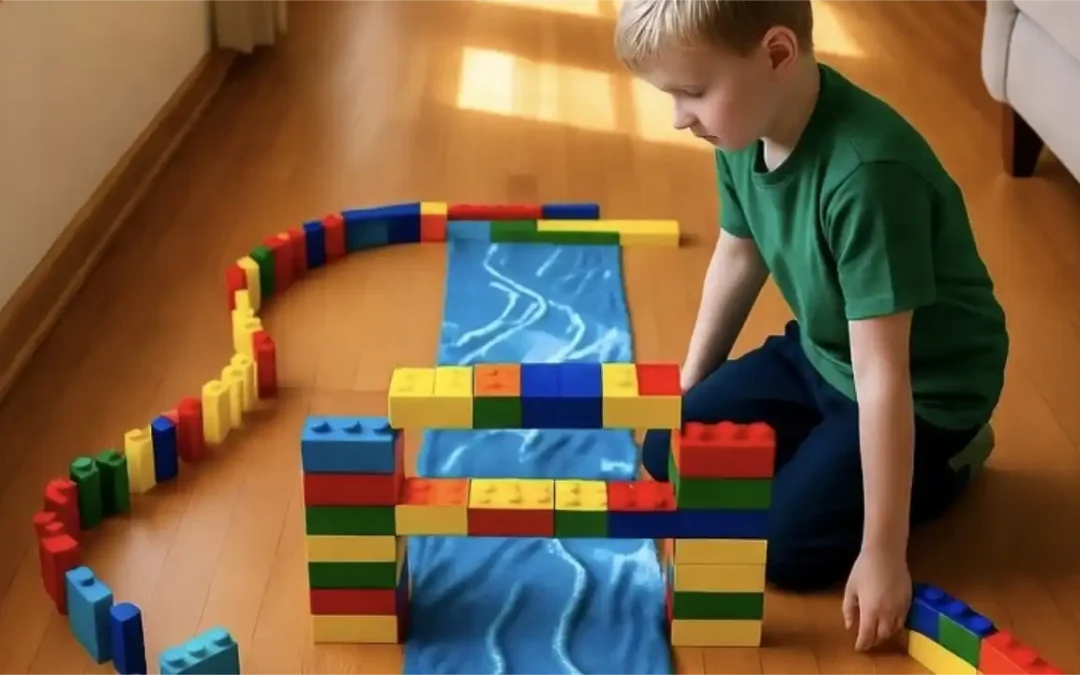
Encouraging Risk-Taking and Experimentation: Test Creative Guesses
Encourage children to test their ideas and see what happens. This builds reasoning, confidence, and active problem-solving skills.
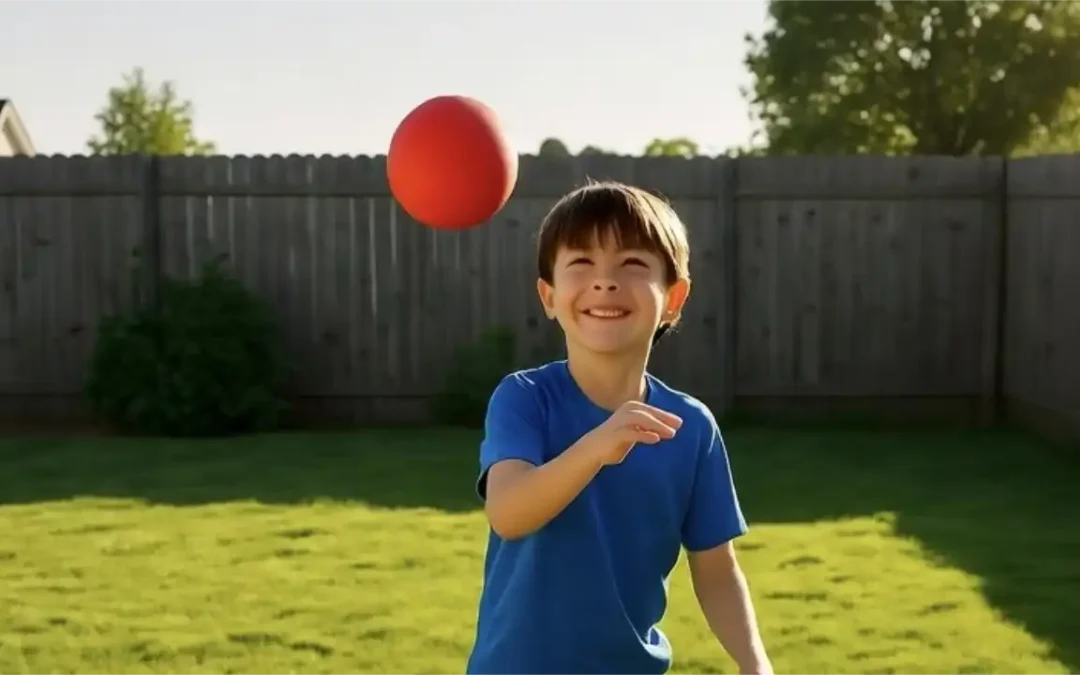
Encouraging Risk-Taking and Experimentation: Cheer Effort Over Results
Praising effort builds resilience and self-belief. Learn to celebrate persistence and courage rather than perfection or quick success.
Table of contents

Primordial Soup for the Mind: Navigation
Navigate the book Primordial Soup for the Mind.
TIPS
- Provide materials without a goal
- Say yes to strange ideas
- Step back and watch the weird unfold
ACTIVITIES
- Hold “No Instructions Day” with random supplies
- Let them narrate or film their creative process
- Invent from junk drawers or recycling bins
TOOLS
Paint, recyclables, costume parts, scrap wood, cardboard, tape

Download “Primordial Soup for the Mind: A Parent’s Guide to Nurturing Intellectual Growth”
Enter your information to get this article and hundreds more as part of the FREE book Primordial Soup for the Mind.
Share your thoughts with the Thought Academy community in the Comments section below.

Sharpen those skills!
Enter your information to get our FREE practice exercises so you can hone your critical thinking and reasoning skills!



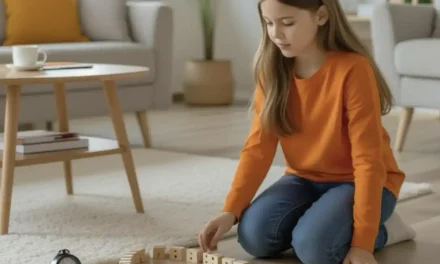

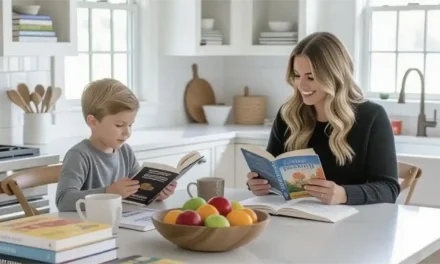

0 Comments